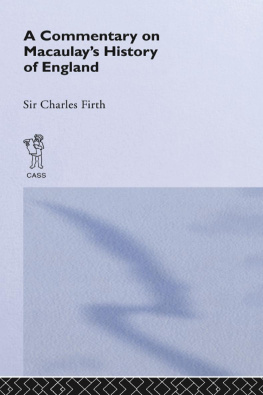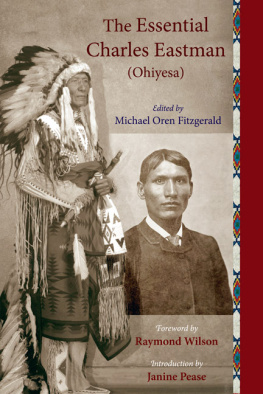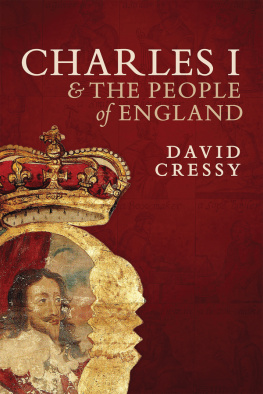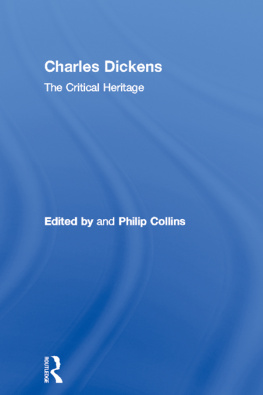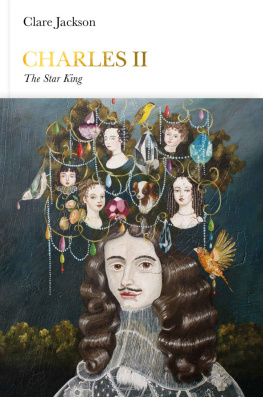TRANSCRIBER'S NOTE.
Some pages of this work have been moved from the original sequence to enable the contents to continue without interruption. The page numbering remains unaltered.
Only references within this volume have been linked. A complete Index will be found in the Fourth Volume.
The book cover has been created by the transcriber and is placed in the public domain.
MR. PUNCH'S HISTORY
OF MODERN ENGLAND
THE RECONCILIATION:
OR, AS IT OUGHT TO BE
Reproduced from the cartoon in Punch, 15th March, 1845.
MR. Punch's History
of Modern England
By
CHARLES L. GRAVES
In Four Volumes
VOL. I.1841-1857
CASSELL AND COMPANY, LTD
London, New York, Toronto and Melbourne
1921
Published by arrangement with the Proprietors of "Punch"
PREFACE
The title of this work indicates at once its main source and its limitations. The files of Punch have been generally admitted to be a valuable mine of information on the manners, customs, and fashions of the Victorian age, and of the wealth of material thus provided liberal use has been made. But it must not be forgotten that Punch has always been a London paper, and that in so far as English life is reflected in his pages, London always comes first, though in this volume, and especially during the "Hungry 'Forties," Lancashire comes a very good second. For pictures of provincial societysuch, for example, as that given in Cranford or in the novels of Trollopeor of life in Edinburgh or Dublin, the chronicler of Victorian England must look outside Punch. The "country cousin" is not forgotten, but for the most part comes into view when he is on a visit to London, not when he is on his native heath. Yet even with these deductions the amount of material is embarrassingly rich. And this is due not only to the multiplicity of subjects treated, but to the manner in which they were discussed. Of Punch, in his early days at any rate, the criticism recently applied to Victorian writers in general by a writer in Blackwood holds good: "They had a great deal to say, and they said it sometimes in too loud a voice. Such was their virtue, to which their vice was akin. Their vice was the vice of rhetoric. They fell to the temptation of many words. They wrote too often as the tub-thumper speaks, without much self-criticism and with a too fervent desire to be heard immediately and at all costs." In the 'forties Punch doubled the rles of jester and political pamphleteer, and in the latter capacity indulged in a great deal of vehement partisan rhetoric. The loudest, the most passionate and moving as well as the least judicial of his spokesmen was Douglas Jerrold. The choice of dividing lines between periods must always be somewhat artificial, but I was confirmed in my decision to end the first volume with the year of the Indian Mutiny by the fact that it coincided with the death of Douglas Jerrold, who from 1841 to 1857 had, more than any other writer, been responsible for the Radical and humanitarian views expressed in Punch.
My task would have been greatly simplified by the exclusion of politics altogether. But to do that would have involved the neglect of what is, after all, perhaps the most interesting and in many ways the most honourable phase of Punch's history, his championship of the poor and oppressed, and his efforts to bridge the gap between the "Two Nations"the phrase which was used and justified in the finest passage of Disraeli's Sybil, and which I have chosen as the title for the first part of the present volume. To write a Social History of England at any time without reference to the political background would be difficult; it is practically impossible in a chronicle based on Punch in the 'forties and 'fifties. In the second part I have endeavoured to redress the balance. Here one recognizes the advantages of Punch's London outlook in dealing with the Court and fashion and the acute contrasts furnished between Mayfair on the one hand and the suburbs and slums on the other.
No attempt has been made to represent Punch as infallible whether as a recorder, a critic, or a prophet. He was often wrong, unjust, and even cruelnotably in his view of Peel and Lincoln, and in his conduct of the "No Popery" crusadethough he seldom failed to make amends, even to the extent of standing in a white sheet over Lincoln's grave. But the majority of these confessions took the form of posthumous tributes. As for the gradual cooling of Punch's democratic ardour, that may be attributed partly to the removal or remedying of abuses by legislation and the education of public opinion; partly to the fact that newspapers follow the rule of individuals, and tend to become more moderate as they grow older. The great value of Punch resides in the fact that it provides us with a history of the Victorians written by themselves. This is no guarantee of the accuracy of the facts recorded. We have had painful proof in recent years that contemporary evidence, when based on hearsay, even though written down red-hot in a diary, is, to put it mildly, incapable of corroboration. But, as reflecting the nature and mood of the writer, contemporary evidence is always interesting. My aim has been to supply a critical commentary, and, where possible, to verify or correct the statements or judgments recorded in Punch. Acknowledgments of the various authorities consulted will be found in the footnotes, but I should like to express my special indebtedness to the Dictionary of National Biography; to the New English Dictionary; to The Political History of England, by Sir Sidney Low and Mr. Lloyd Sanders; to Mr. C.R. Fay's Life and Labour in the Nineteenth Century; and, where the inner or domestic history of the paper is concerned, to Mr. M. H. Spielmann's History of Punch.
The work of preparing this volume has been greatly lightened by the encouragement and practical help of Mr. Philip Agnew, the managing director, and Mr. Heather, the secretary, of Messrs. Bradbury, Agnew and Co.; by Miss Berry's transcription of extracts; and, above all, by the research, the advice and suggestions of Miss M. R. Walpole, the assistant librarian of the Athenum Club.
CHARLES L. GRAVES.


